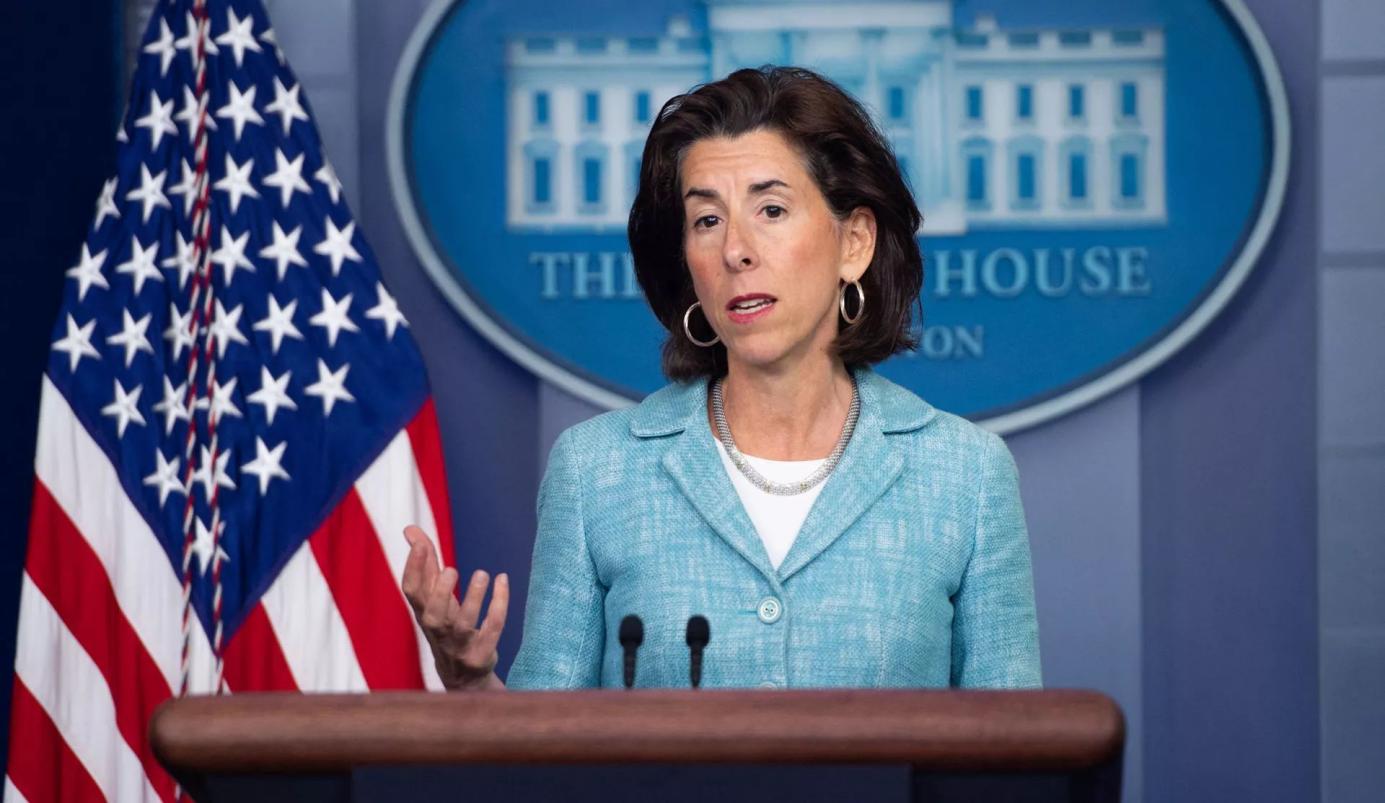
After a period of careful preparation and anticipation, on August 27th, US Commerce Secretary Gina Raimondo finally embarked on a four-day visit to China. This is Raimondo's first invited visit to China during her tenure and the fourth visit by a US dignitary to China this year.
The US has expressed its intention to visit China several times this year. Prior to Raimondo, US Secretary of State Antony Blinken, Treasury Secretary Janet Yellen, and Special Presidential Envoy for Climate John Kerry had visited Beijing in visits "through consultations with both China and the United States." However, it is worth noting that Raimondo's visit to China is different from the previous ones. The previous visits were determined "through consultations with both China and the United States," while Raimondo was "invited" to visit China. The Chinese Ministry of Commerce stated, "At the invitation of Minister of Commerce Wang Wentao, US Secretary of Commerce Gina Raimondo will visit China from August 27th to 30th." The US Department of Commerce stated that this visit aims to enhance communication with Beijing. This is a clear difference, and the media speculates that the US Commerce Secretary's visit to China may signal a "thaw" in US-China relations.
Furthermore, there was unprecedented preparation and atmosphere-building before this visit, something that previous three US dignitary visits to China did not have. Chinese Ambassador to the US, Xie Feng, met with Raimondo in Washington on August 22nd, and the two sides exchanged views on China-US economic and trade relations and Raimondo's upcoming visit. Surprisingly, the US Department of Commerce announced that it would remove 27 Chinese entities from the "unverified" list, no longer restricting them from purchasing products from US companies, which is widely seen as Washington extending an "olive branch" to China. Additionally, this month, both the US and China governments approved doubling the number of passenger flights between the two countries.
In addition to these developments, Commerce Secretary Raimondo's visit to China brought two significant gifts: one is the extension of the "US-China Science and Technology Cooperation Agreement" set to expire on August 27th for six months. The second is the extension of semiconductor waivers for South Korea and Taiwan for one year, allowing them to continue introducing technology and equipment for mature processes into China for operation.
Yu Jianlong, Vice Chairman of the China Council for the Promotion of International Trade, stated that China and the United States have formed a highly complementary and deeply integrated economic relationship, and consensus should be reached to eliminate barriers and expand cooperation on the basis of mutual benefit. In the eyes of industry insiders, Raimondo's visit is crucial for stabilizing US-China relations and maintaining or improving the existing common interests between the two countries. In the future, China and the US may adopt pragmatic policies to safeguard their common interests.
However, it must be recognized that there are deep-seated grievances between China and the United States, and many issues have become difficult to resolve. The most important reason for this is the lack of trust between the top levels of China and the US in politics, as well as opposing national security strategies. The trade and economic rivalry is just one external manifestation of these deeper issues. The Biden administration's policy of decoupling from China is aimed at reducing dependence on the Chinese supply chain to ensure the complete autonomy of US strategic materials and products. This is a clear expression of extreme distrust towards China.
For China, one of the biggest issues in current US-China economic and trade relations is the pressure the US has placed on Chinese high-tech companies, especially in the area of semiconductor sanctions and restrictions. Just before this visit to China, several US lawmakers pressured Raimondo, stating that there should be no concessions to China regarding technology export restrictions. From this, we can see that the US government is subject to many constraints from Congress, and the government dare not disregard congressional opinions. Due to the sharp confrontation between China and the US in many areas, including politics, security, and more, the United States has created a strong anti-China sentiment. Any action against China or sanctions on China can garner widespread support, and this atmosphere will seriously affect the resolution of trade and economic issues between the two countries.
According to the Associated Press, Raimondo hopes that this trip will find "specific steps that can be taken to push our commercial relationship forward." However, in practice, the current US strategy is that for what you cannot achieve, it will tightly block you, and for what you can achieve, it will seek cooperation with you. This has become a bargaining chip. Therefore, whether there will be actual signs of a thaw in US-China relations depends on whether the United States can genuinely show sincerity, rather than taking all the benefits and doing harm. Similarly, whether Raimondo's visit to China can substantially improve US-China economic and trade relations and promote the healthy and stable development of US-China relations remains to be further observed.

Driven by the Trump administration's push to relax financial regulations and the recovery of investment banking business, the market value of the six major banks in the United States has cumulatively increased by approximately 600 billion US dollars by 2025.
Driven by the Trump administration's push to relax financia…
On Christmas evening, U.S. President Trump posted on social…
According to multiple foreign media reports, the recent fin…
The middle class, once regarded as the cornerstone of Ameri…
On December 19th local time, the US military launched a lar…
The Boxing Day sunshine should have cast a false glow of pr…